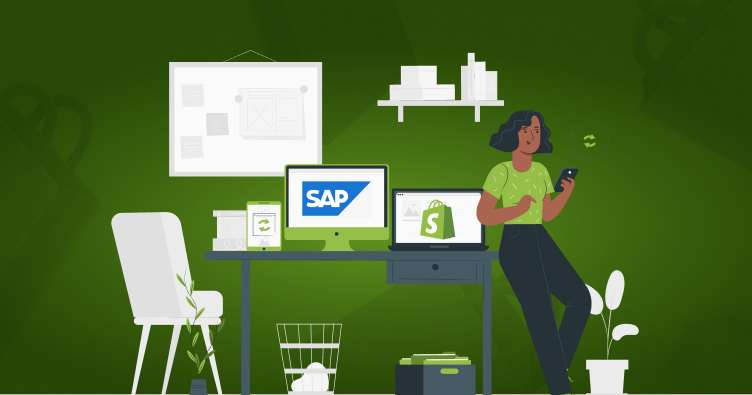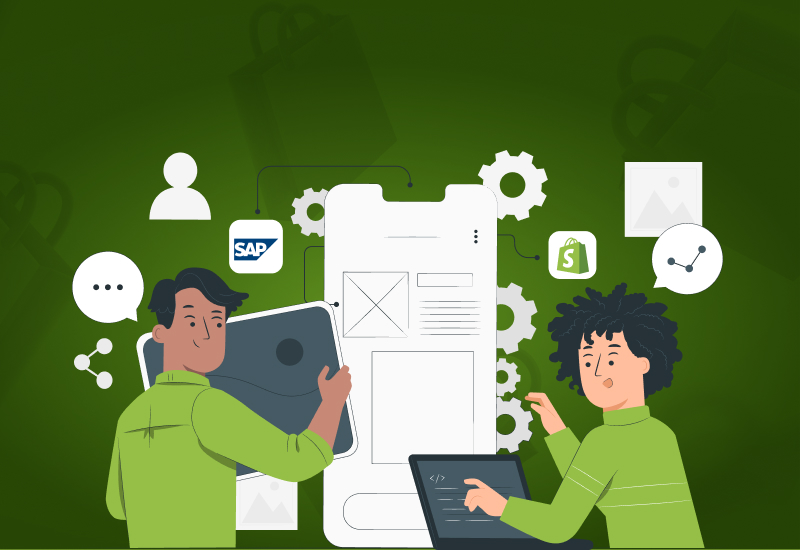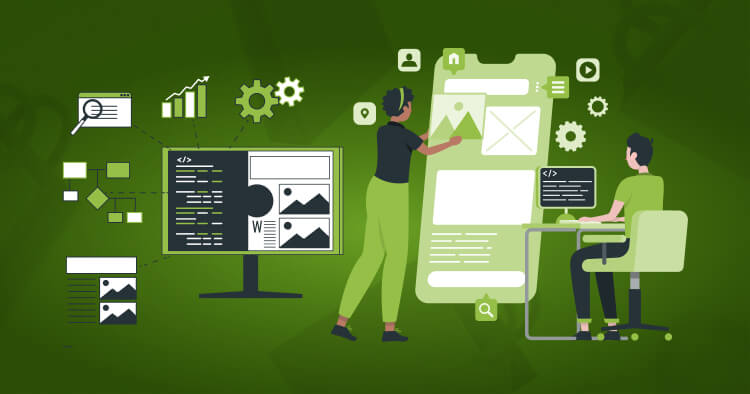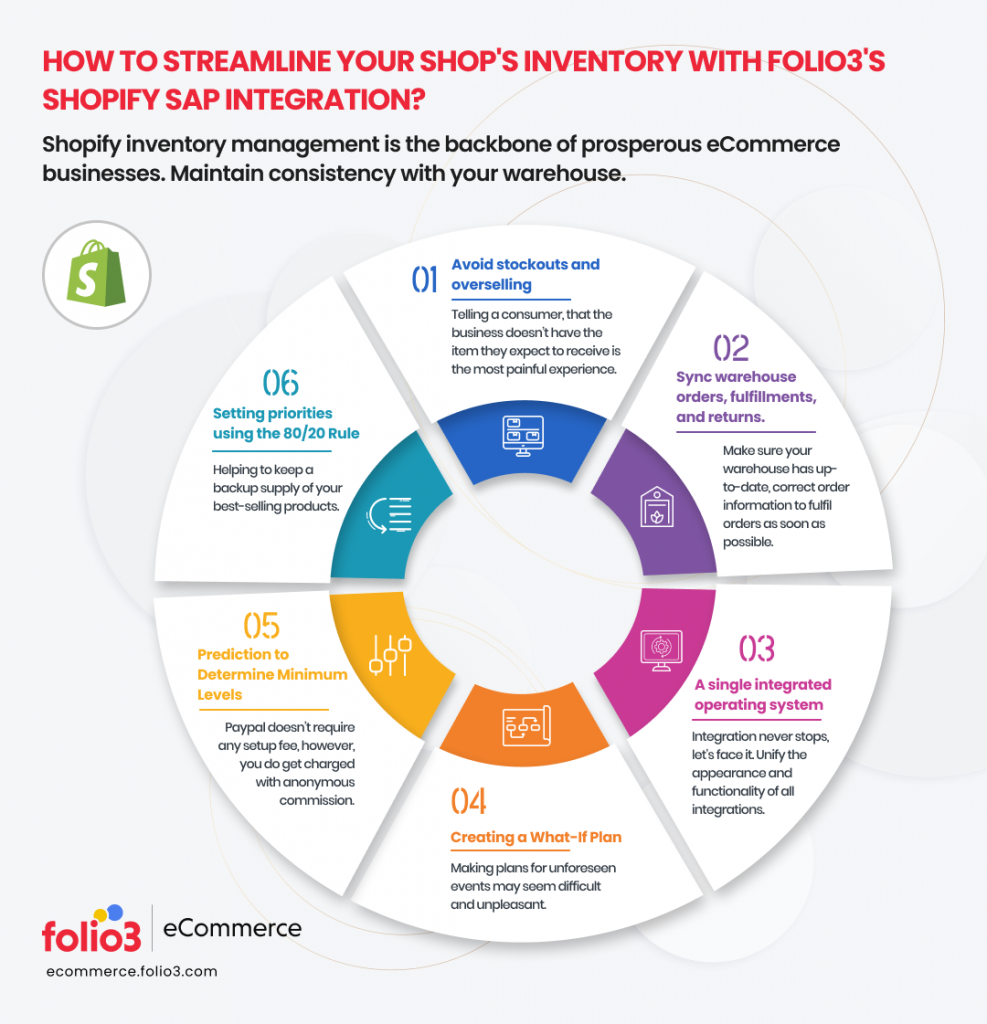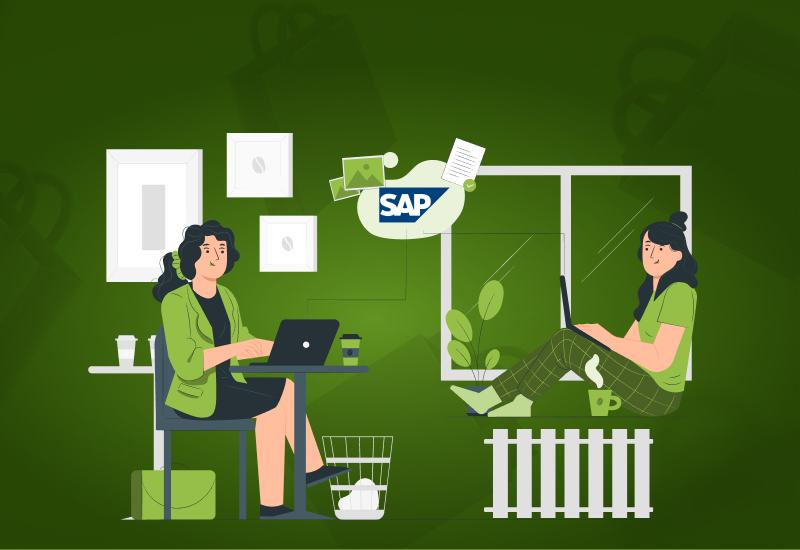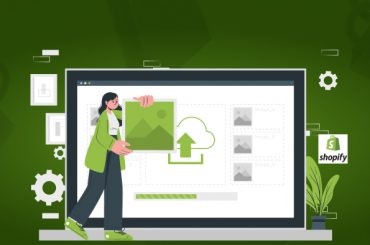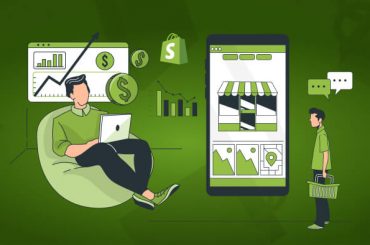Shopify SAP Integration – Does Shopify Integrate With SAP?
Last Updated | June 28, 2024
Table of Contents
The global ERP market is expected to reach $55.88 billion by 2025. The growing demand from eCommerce enterprises will support this surge as they seek perfect integration options with platforms like Shopify. The need for such integration is vital because businesses strive to balance user-friendly sales platforms and robust backend ERP systems.
One common situation involves the Shopify SAP integration—the former is known for its intuitive online storefront capabilities, while the latter is a heavyweight in enterprise resource planning.
Do You Need SAP Shopify Integration?
If you’re still struggling with separate systems and data silos, integrating Shopify with SAP might be the push you have been waiting for. Here’s why you need Shopify SAP integration:
Organizes Order Management
Integration eliminates the need to duplicate order information between platforms. Orders placed on Shopify automatically flow into SAP, triggering efficient fulfillment processes and on-the-spot inventory updates.
Enhances Inventory Visibility and Control
Merging these two means no more stock discrepancies or overselling. This way, you gain live visibility into inventory levels across both platforms. Hence, it empowers you to optimize stock levels, prevent stockouts, and make informed purchasing decisions.
Improves Customer Satisfaction
Accurate inventory availability benefits in several ways. For instance, it has faster order processing, precise inventory availability, and proper communication. All that leads to timely order fulfillment reduces order errors, and provides customers with accurate tracking information.
Supports Data-Driven Insights and Decision Making
Combined data unlocks a treasure trove of insights. You can analyze customer behavior and track key performance indicators (KPIs) for decision-making. Furthermore, the combination is also essential to gain valuable business intelligence across both platforms.
Provides Scalability for Future Growth
The system needs to be fast with the expansion of your business. Integration lays the foundation for future growth by giving a scalable and flexible platform that handles increasing order numbers and complex business operations.
Improves Collaboration and Communication
This integration breaks down departmental silos and backs better communication between sales, marketing, and operations teams. Everyone has unified data, so organizations perform well concerning collaborative efforts.
Renders Competitive Advantage
In a competitive eCommerce environment, efficiency and insights are crucial for differentiation. This is where such integration gives you a valuable edge by structuring operations and improving customer experience.
How SAP and Shopify Can Be Integrated
Incorporating the two powerful platforms like SAP and Shopify is possible but not easy. The major challenge lies in forming a smooth connection between these distinct ecosystems. This section will explore three integration methods that facilitate a harmonious collaboration between SAP and Shopify.
1. Point-to-Point Integration (P2P)
Point-to-Point Integration, or P2P integration, is a straightforward approach where a direct connection is established between SAP and Shopify. In this method, custom connectors or APIs (Application Programming Interfaces) create a bridge between the two systems.
To implement P2P integration between SAP and Shopify, businesses need to identify the specific touchpoints for data transfer. Such as inventory management and order processing are a few examples. The next step is to develop custom scripts or middleware to support the seamless exchange of information between SAP and Shopify at these touchpoints.
While P2P integration offers custom-made solutions, any changes or updates in either SAP or Shopify may also require adjustments to the custom connectors.
2. Native Integration
Native Integration refers to using built-in functionalities or connectors provided by SAP and Shopify. The purpose is to establish a direct link between the two platforms. Since both SAP and Shopify offer APIs, they enable integration without the need for extensive custom development.
This method encourages businesses to utilize the standard APIs offered by SAP and Shopify to synchronize data in real-time. For instance, SAP’s OData API can extract and upload relevant data from SAP to Shopify. It leads to the easy flow of information between the two systems via Shopify SAP ECC integration.
Native Integration tends to be easier yet stronger than P2P integration. However, there are some limitations in terms of customization and flexibility.
3. Integration Platform as a Service (iPaaS)
Integration Platform as a Service (iPaaS) is an intermediary layer between SAP and Shopify. iPaaS platforms render comprehensive solutions like Dell Boomi, MuleSoft, or Jitterbit. They all facilitate the integration by offering pre-built connectors for SAP and Shopify.
With iPaaS, businesses can benefit from modular and scalable Shopify SAP b1 integration plans. These platforms often appear with a visual interface. Eventually, this allows users to design and configure integration workflows without complex coding.
The adaptation of iPaaS means that businesses can achieve a balance between customization and scalability. Again, it all depends on the iPaas platforms. However, choosing an iPaaS platform that supports the specific integration requirements of SAP and Shopify is crucial.
For both platforms as a service, businesses should carefully evaluate their specific needs; a well-executed integration strategy utilizes the full potential of both SAP and Shopify, creating a unified and efficient operational ecosystem.
How Does Shopify SAP Integration Work?
The eCommerce stores operating with Shopify Plus can be integrated with SAP for seamless business operations and effective financial management.
First, you must create a Shopify account and the store (if you already have a Shopify store, you don’t need to repeat it). Secondly, API will be used when connecting it with SAP, but you must create the app. To create the app in your Shopify Plus account, you can follow the below-mentioned instructions;
- Tap on the apps and move to “manage private apps.”
- Tap on “create new private app” and add the app name that’s relevant to the business
- Tick the box “allow the app to access the data using API.”
- Now, save the settings, and the app is created.
- When the app is done, the API key, access token, example URL, and shared secret will be automatically created (these are different for every store to ensure secure connection and integration.
Once the app is created, you must use the connector agents who connect Shopify with SAP. To use these connectors, you must have the base URL, API password, key, and shared details.
Once you provide the details, tap the validate button and complete the basic authentication. Now, just hit the save button, and you are ready.
Similarly, you need to connect SAP with the connector agent. The sender Shopify SAP business one integration adapter ensures that Shopify and SAP Cloud Integration can communicate. For this purpose, open SAP and press the plus button.
Add the SAP credentials, including system ID, server host, username, client, system number, password, and preferred language. Once the information is added, click the validate button and save the details.
Now that you are done connecting Shopify and SAP to the connector agent, you must sync these two platforms’ processes. Data entities between the SAP connector and Shopify are automatically synchronized through the SAP connector for Shopify.
In the section below, we are sharing instructions on how to sync the processes from SAP to Shopify:
- First, you must use the product add touchpoint; for that, you must use TCODE WPC2.
- Choose the connector agent’s logical system.
- The connector will process the IDOC through touchpoint and synchronize the product details to the Shopify store (it hits the product API for this)
- Now, the products are synced to the Shopify store. Similarly, you can sync the invoices, delivery, customers, and everything else.
Likewise, if you wish to process Shopify SAP integration for your store, using middleware with duplicate business rules and data is the only way.
Top Shopify ERP Integrations
| ERP Solution | Cost | Pros | Cons |
|---|---|---|---|
| NetSuite | Custom pricing | Highly scalable, rich in features, real-time analytics | High cost, complex setup, may require expert help |
| Odoo | Free (Community) to $24/user/month (Enterprise) | Open-source, modular, flexible | Requires customization, steep learning curve |
| SAP Business One | Custom pricing | Comprehensive, good for large enterprises | Expensive, can be overkill for small businesses |
| Microsoft Dynamics 365 | Starts at $50/user/month | Integrates well with Microsoft products, modular | Can be costly, may need technical support |
| Acumatica | Custom pricing | Cloud-based, mobile-friendly, easy integration | Pricing can be high, complex licensing |
| Brightpearl | Starts at $750/month | Omnichannel support, robust for retail, easy integration | Higher cost for small businesses, limited customization |
| Sage X3 | Custom pricing | Strong in manufacturing and distribution, scalable | High implementation cost, complex setup |
| Fishbowl | Starts at $4,395 one-time license fee | Affordable, good for SMBs, quick implementation | Limited scalability, older interface |
| TradeGecko (QuickBooks Commerce) | Starts at $39/month | Good inventory management, integrates with QuickBooks | Limited advanced features, now part of QuickBooks |
| Veeqo | Starts at $156/month | Multi-channel inventory, shipping integration | May lack advanced ERP features, pricing tiers |
| ERPAG | Starts at $50/month | Simple interface, affordable for small businesses | Limited features for large enterprises |
| Zoho Inventory | Starts at $49/month | Integration with Zoho suite, affordable | Limited advanced ERP features |
| QuickBooks Online | Starts at $25/month | Easy to use, good for accounting | Lacks full ERP functionality, limited scalability |
Detailed Descriptions:
- NetSuite: Offers a comprehensive suite of business management applications, making it ideal for businesses looking for extensive features in one solution. Its real-time analytics and scalability are strong points, but it can be costly and complex to set up.
- Odoo: A modular ERP with both free and paid options, Odoo is highly flexible and can be tailored to specific business needs. However, it requires significant customization, and the learning curve can be steep.
- SAP Business One: Known for its deep functionality and suitability for large enterprises, SAP Business One provides comprehensive solutions but at a high cost, which may not be suitable for smaller businesses.
- Microsoft Dynamics 365: Integrates seamlessly with other Microsoft products and offers a modular approach, allowing businesses to start small and scale. The cost can add up, and technical support may be required.
- Acumatica: This cloud-based ERP offers great integration capabilities and a mobile-friendly interface, but it has a complex pricing model and licensing can be tricky to navigate.
- Brightpearl: Focused on retail and omnichannel support, Brightpearl integrates well with Shopify but comes with a higher cost, making it less ideal for smaller businesses.
- Sage X3: Best suited for manufacturing and distribution sectors, Sage X3 is scalable but comes with high implementation costs and complexity.
- Fishbowl: An affordable option for small and medium-sized businesses, Fishbowl offers quick implementation but has limited scalability and an older user interface.
- TradeGecko (QuickBooks Commerce): Now part of QuickBooks, TradeGecko offers strong inventory management features but lacks advanced ERP functionalities.
- Veeqo: Known for its multi-channel inventory and shipping integrations, Veeqo is good for businesses needing these features but lacks some advanced ERP functionalities.
- ERPAG: Simple and affordable, ERPAG is suitable for small businesses looking for basic ERP functionalities but may not meet the needs of larger enterprises.
- Zoho Inventory: Part of the Zoho suite, it integrates well and is affordable but does not offer the full range of ERP functionalities.
- QuickBooks Online: Ideal for accounting needs, QuickBooks Online is easy to use but lacks comprehensive ERP features and has limited scalability.
These solutions cater to a variety of business needs, from small businesses looking for affordable, simple ERP systems to large enterprises needing comprehensive, scalable solutions.
Things to Consider for Shopify SAP Integration
Before the integration, you must consider certain essential points, which will help you move forward securely.
Documenting The Key Touchpoints
Regarding this integration, the store owners must devise the list and describe the rules around inventory control, customer management, order flow, and fulfillment process.
Simply put, you must determine which business functions depend on communication between Shopify and SAP. Similarly, you must consider the communication cadence, frequency, and load. Also, don’t forget to choose between bi-directional and uni-directional communication.
Connector App
When you have mapped out the touchpoints, you need to determine the use of the connector app. The connectors apps are plugins that can be installed on Shopify and used in the hosted service. It is designed to work as a bridge for data flow between SAP and Shopify stores.
With the connector app, you won’t have to pay hefty amounts for custom integration. In addition, the maintenance costs of connector apps are lower than what you would lose if customer service weren’t on point.
As a result, the Shopify SAP integration situation is a win-win situation for you and the services working for you.
There are some predesigned connectors available for primary and small-scale businesses. However, you need to customize the connector app for a bigger store with complicated systems. You can hire a Shopify app developer or Shopify migration services to customize the connector app.
Consider API Limitations & Capabilities
Shopify is known for its robust API, which can support various functionality extensions and customized integration. However, the data’s criticality and centrality of the integration can push the API’s limits.
So, before you opt for customized integrations, ensure that the data flow and goals are compatible with the API limitations.
Security Assessment & Planning
SAP and Shopify integration will have various systems, so it’s essential to document the data state and flow throughout the funnel. Make sure that the data is secured and encrypted.
Moreover, you must ensure secure log storage; the logs still shouldn’t have sensitive data. Lastly, you must check the temporary file storage to ensure the sensitive data is not left unsecured.
Accept Compromises
As a store owner, ensure you keep an open mind and are ready to compromise. This is because the integrations depend on the touchpoints of various systems, which means there are multiple requirements that your store might not comply with. For this reason, you need to keep the ultimate goal in mind.
Quality Assurance Plan
Before starting with the integration, ensure that you have designed the quality assurance plan to ensure the customer experience is not tampered with during the integration process. In addition, the data flow between the two systems should be seamless.
Connection Protocol
Every integration approach has a set of limitations and benefits. The file and information exchange works fine when following the correct connection protocol. It is suggested that the information and file exchange be completed during non-business hours to avoid impacting the customer experience.
Indirect User Policy
When connecting SAP with the Shopify store, the customers are liable to charge SAP for indirect utilization. For this reason, advising customers to check the commercial agreement to see the new charges is suggested.
What Are the Best Shopify SAP Integration Methods?
When it comes down to integrating Shopify with SAP, there are various methods, and some of them are mentioned below:
File Exchange
The integration choices will be limited when working with mainframes, but file exchange is the most suitable method. The files are generated and stored in a certain directory in the file exchange method.
Then, a middleware carries the file and processes it to the final folder. At that point, the final folder processes it. With SAP, file generation and processing are fully supported.
DI/HANA Service Layer
If you want to integrate SAP Business One, the DI services are a must since they are essential for exposing the Business One products.
IDOCs
For those who don’t know, IDOCs are responsible for exchanging information from and to SAP. It wouldn’t be wrong to say these are XML files with well-defined data categories.
These files also have child and parent nodes. As far as integration is concerned, various configuration processes need to be followed.
RFCs
RFC is a promising method for real-time SAP integration with Shopify. It can help with real-time business process validation and communication, such as sales order development, minimum order list, and price calculation.
What Are the Benefits of Shopify SAP Integration?
SAP ERP System and Shopify store integration have become a common choice among Shopify store owners due to various benefits that eCommerce stores cannot attain otherwise.
First, the customer account information will be synced; everything will be automatically updated, resulting in seamless customer account management.
With SAP Business One Shopify marketplace integration services, the Shopify orders will be automatically inserted into SAP, including the customer information, billing and shipping address, payment method, delivery method, product description, and desired quantity.
All these benefits enhance the customer experience and support business growth. More benefits of the integration are mentioned below:
Read Also Hubspot Shopify Integration
Fraud Identification
With this integration, businesses can quickly identify the high and medium risks and place such orders on hold (everything is done automatically). In addition, it will send an immediate notification alert to the store admin for further processing and investigation. What’s best is that the store shows itself out of stock when there are chances of fraud.
Order Status
The integration allows SAP to send automated order information to Shopify. This is because it has a dynamic information transfer system that automatically sends the order status to Shopify. The order status information appears on the dashboard for further action. In addition to order status, it sends pricing and inventory updates to Shopify and changes the storefront.
Product Updates
We have already mentioned that SAP sends automated order status and inventory updates, but what about product updates? It can also automate product updates. For instance, the Shopify store also updates the changes in product SKU, retail charges, inventory levels, tax, and weight. In the case of order placement, it also places the order with a contracted courier service.
Invoices & Alerts
It ensures that the incoming AR invoices and payments are automatically created and updated in the finance tab. It can also identify every transaction, analyze them for errors, and send out an alert in case of some error. For instance, it sends an alert when sales processes fail and need immediate attention.
Additional Integrations
Generally, people hire a Shopify website design company to set up the integration, but what do you do after the setup? This integration allows store owners to access additional integrations and services like invoice automation software, pick-up list development, and note dispatching. Moreover, store owners can add more plugins and integrations to manage various Shopify stores simultaneously and receive shipping alerts.
Read Also Integrate Klaviyo with Shopify
The Best Shopify ERP Integration Options
There are multiple top-notch ERPs in the market. Read on if you are looking for ERPs that integrate with Shopify seamlessly.
NetSuite
This cloud-based platform can support every business process, including finance, supply chain, eCommerce, and manufacturing. It is a suitable choice for every business, irrespective of size, since it provides complete control over the business and visibility into its functions.
NetSuite can automate back and front-end office processes while integrating visual analytics and data to provide practical insights.
It has real-time reporting and business intelligence features so that businesses can make practical decisions. NetSuite is a scalable ERP platform, which means you can add features as the store grows. To summarize, it helps drive better business outcomes.
Odoo
This open-source ERP platform has a full range of integrated business applications. It includes the features of accounting, ecommerce, CRM, inventory management, billing, and warehouse management.
In addition, it can help manage the project management, purchasing, and financial management aspects. It has a well-designed framework for the community. Odoo has a modular system, meaning customers can customize it according to their preferences.
SAP
This is one of the biggest ERP software solutions and is perfect for most companies. It is scalable and can be implemented as a hybrid model, SaaS platform, and on-premise system. Some features include product lifecycle management, supply chain, HR, and financial management.
SAP is a suitable ERP for various industries, but it’s specifically great for retail, wholesale distribution, professional services, and manufacturing. When integrated with Shopify, it can help sync data and remove human errors, but make sure you appoint the best Shopify marketplace integration services to get the best outcomes.
Microsoft Dynamics
This is a cloud-based and modular ERP with extensive tools for CRM, marketing, sales, marketing automation, project management, and financial tracking. It can also handle sales forecasting, project automation, and much more.
The CRM features can be integrated with LinkedIn and Microsoft services. With Microsoft Dynamics, companies can make data-backed decisions through practical insights. As a result, the business efficiency will be enhanced by multiple.
Sage
This ERP software is suitable for managing and streamlining regular business functions using precise business insights. It can connect various departments, such as inventory management, HR, CRM, and accounting.
With the help of cloud tools, users can streamline core business processes, enhance productivity standards, and identify improvement areas. As a result, it will result in business growth. It can be integrated with Shopify to optimize order fulfillment, updates, and sales transactions.
Epicor
This cloud-based and on-premise platform is suitable for medium-scale and small-scale businesses. It is a promising option for companies working in the distribution and manufacturing industries. It provides a dashboard that shows off the KPIs. However, setting up these key performance indicators can be challenging, so it’s best to hire a Shopify website builder since they can help with the integration and related processes.
They also have mobile solutions available for assigning work orders and managing inventory. The store owners can complete the billing activities, review the service-related history, and do everything remotely.
SAP ECC + Shopify Integration Endpoints
CUSTOMER
This endpoint likely handles customer data synchronization between Shopify and SAP ECC, including creating, updating, and deleting customer records.
ORDER
This endpoint deals with order data flow, transferring orders from Shopify to SAP ECC for processing (inventory checks, fulfillment, invoicing, etc.).
PRODUCT
This endpoint ensures product information consistency between the two systems, including product details, pricing, and inventory levels.
INVOICE
This endpoint manages invoice generation and transmission from SAP ECC to Shopify based on fulfilled orders.
SHIPMENT
This endpoint facilitates shipment tracking and status updates, reflecting fulfillment progress in both systems.
How to Choose an Agency for SAP Shopify Integration?
There is no perfect or best company for SAP and ERP integration because it depends on your preferences, how you want the integration to turn out, and your budget.
That said, if you hire a Shopify app developer, Folio3 is a reliable choice because we have years of experience and can cater to your unique needs. However, we are sharing the guide on how to hire Shopify experts who meet your needs and preferences. So, let’s check out those considerations!
Communication Skills
This might not look important, but choosing a company with reliable communication is essential. Ensuring they take you along at every step and provide updates is important. In simpler words, proper communication will ensure you know about the project’s progress and overall status.
Portfolio
We cannot stress enough the importance of checking the portfolio. Having a look at their portfolio will help determine if a company will be able to understand your project needs or not. Also, you must check their portfolio on Shopify integration since that’s what you are looking for.
Testimonials
Finding a Shopify integration company with a fair share of client feedback and reviews on the website is essential. If you see competitors on the list or some big brands, you will know they will do a good job.
Approach
You won’t be able to rise ahead of the competitors if the store and integration look similar. For this reason, try to check their approach and ensure they provide something innovative and unique.
Warranty
Working with a development company that can provide revisions and recodifications if the project isn’t according to your needs is essential. In simpler words, they should provide customer satisfaction.
Post-Project Support
Even if the integration is done, there are chances that you will need help maintaining it or understanding. For this reason, ensure they provide enough post-project support to make the integration experience seamless for your business.
Conclusion
As technology continues to advance, the need for efficient and integrated systems is becoming more necessary. ERP software solutions offer a comprehensive approach to managing various business functions, and integrating them with platforms like Shopify can further enhance their capabilities.
Therefore, Shopify integration with SAP can rapidly and effectively combine the two to simplify time-consuming and expensive order management operations involving customer information, orders, items, stock, and pricing. With Shopify SAP integration, you can combine data from the two platforms and improve your company’s value.
Frequently Asked Questions
Can Shopify integrate with SAP?
Yes, Shopify can integrate with SAP via middleware solutions like MuleSoft, or custom API integrations to sync orders, inventory, and customer data between both platforms.
What integration does Shopify use?
Shopify uses various integrations, including third-party apps and APIs for services like payments, shipping, CRM, ERP, marketing, and more, to extend its functionality.
Does Shopify have an ERP system?
No, Shopify does not have its own ERP system, but it supports integration with many ERP solutions such as SAP, NetSuite, and Microsoft Dynamics for enhanced business management.
Can I integrate my POS with Shopify?
Yes, you can integrate various POS systems with Shopify to streamline sales, inventory management, and customer data across both online and offline channels.
Is POS free on Shopify?
Shopify offers a free version of its POS system, but advanced features and hardware require a subscription to Shopify POS Pro, which incurs additional costs.
What POS works best with Shopify?
Shopify POS works best with Shopify for seamless integration, but other compatible systems include Square, Vend, and Lightspeed, each offering different features for various business needs.

